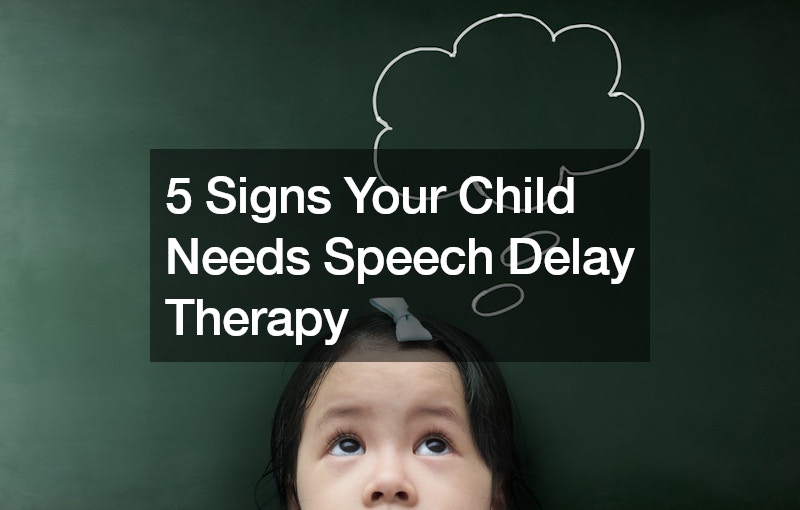
Speech development is a crucial aspect of early childhood, serving as the foundation for communication, social interaction, and cognitive growth. Most children meet speech milestones within a typical age range, but some may experience delays that necessitate professional intervention. Recognizing the signs of speech delay early can lead to timely therapy, which is vital for enhancing communication skills and overall development. Here are five signs that your child may benefit from speech delay therapy:
1. Limited Vocabulary
One of the most noticeable signs of a speech delay is a limited vocabulary. By the age of two, children typically know about 50 words and start combining them into simple sentences.
If your child uses fewer words than peers or hasn’t started to combine words by this age, it might be time to consult a speech therapist. A professional can assess whether the limited vocabulary is within normal developmental variations or a sign of a speech delay.
2. Difficulty Following Simple Instructions
By the age of 18 months to 2 years, children should be able to understand and follow simple, one-step instructions like “Please give me the ball” or “Come here.” If your child consistently shows difficulty understanding or following simple commands, this could indicate a problem not only with speech but also with auditory processing, which speech therapy can help improve.
3. Pronunciation Issues
While it’s normal for young children to struggle with certain sounds or words, persistent issues with pronunciation can be indicative of a speech delay. For example, if a child older than three years continues to substitute certain sounds regularly (e.g., saying “tat” instead of “cat”), or if their speech is largely unintelligible to those outside the immediate family, this might warrant an evaluation by a speech therapist.
4. Reliance on Gestures Over Words
Children naturally use gestures. However, if a child over-relies on gestures to communicate without attempting to vocalize or if they get frustrated when not understood, it may suggest that they are struggling with speech production. Speech therapy can assist in developing the necessary skills to use verbal communication effectively.
5. Social Withdrawal or Frustration
If speech delays affect a child’s ability to interact with peers or express needs and emotions, it can lead to social withdrawal or signs of frustration. Children who avoid interacting with others or show significant frustration during communication efforts might be experiencing challenges that speech therapy can address.
Watch the video above to learn about more signs that your child needs speech delay therapy in New York, NY or another area!.




